5. Counters (Lee Il-ha)
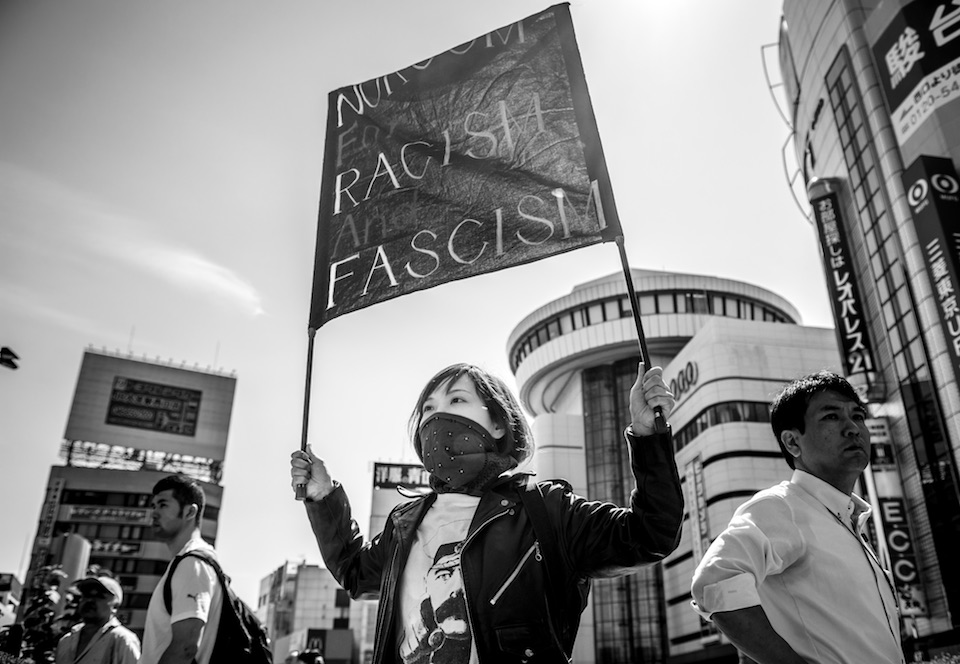
The rise of the extreme right to the point of fascism, and the racism associated with it have been on the rise for quite some time now, unfortunately on a global level. Japan has quite a past in this concept, with the history of the country always leaning towards the right; however, since 2013, the extreme right-racist groups have been on the rise, having organized more than 1000 speeches around the nation, with 329 of them taking place in 2016, when most of this documentary takes place.
One of the leading groups of these speeches is the Zaitoku, whose hate is mostly addressed towards Zainichi Koreans, who have actually been residing in the country since the early 20th century. The hatred of the group reaches so far, that phrases like “kill Koreans” and “if you find a Korean woman on the street don’t hesitate to throw stones and rape them!” are quite common during their demonstrations. The documentary however, focuses on an opposing group called “Counters”, whose purpose is to disrupt peacefully the demonstrations of the fascists and to demonstrate against racism, themselves.
Specifically, former mid-level Yakuza Takahashi, who has been reborn according to his own words, heads a group inside the Counters called Otoko, who think that violence is necessary to disrupt the powers of racism and discrimination. The documentary follows Takahashi and the other members of the group in their struggle, while also presenting the Zaitoku and particularly their founder and leader, Sakurai, who uses the concept of the freedom of speech to spread his hate.
Among the most central issues of the documentary, is that groups like Zaitoku take advantage of the fact that the police cannot deny any kind of protest that is filed properly in a precinct, thus deeming the antiracist actions illegal. In that fashion, the Otoko group also has to face the police, who, actually obeying the law, have to disrupt the antifascist groups from obstructing the fascist speeches.
This is actually one of the main goals of the Counters movement, who, with the help of the head-lawyer of their legal team, Kambara, and Arita, a Diet Member who is also a member of the movement, try to declare Zaitoku’s and other similar groups’ hate speech illegal.
4. After My Death (Kim Ui-seok)
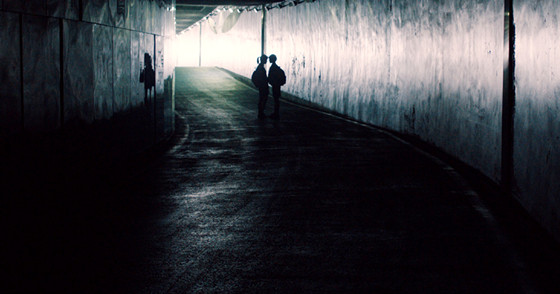
One day, high school girl Kyeong-min goes missing. She seemed to jump off a bridge to her death, but without a body, or a suicide note, no conclusion can be drawn. The next day the police arrive at her school to investigate the matter. Soon it is revealed that a classmate of hers, Yeong-hee was the last to see her. With no direct answers visible, the girl soon becomes the victim of bullying in her school, instigated by the now discovered dead girl’s mother and her classmates, who believe she is the one responsible for Kyeong-min’s death, and violence soon takes over.
Yeong-hee tries to find out on her own what happened to the girl, but as the school and her family offer no support in the bullying she experiences, she decides to commit suicide herself, in the most horrible fashion.
Quite similarly to the Japanese films about the subject (“Confessions” comes to mind), Kim Ui-seok wraps his social comments in a mantle of mystery and violence, with the latter offering a number of shocking scenes, as the ones in Yeong-hee’s house and the one in the funeral. Through this approach, that also uses Yeong-hee as medium into exploring the reasons teenagers commit suicide and retort to violence, Kim makes a rather harsh comment, which mainly focuses on teachers and schools in general, and parents.
Kim presents the former as an institution that just wants to save face and move on, hiding behind ceremony and rituals, while neglecting the actual needs of the students to the point of ignoring even the harsh events that take place here. Ignorance is also attributed to the parents, who seem to have no clue about what is going on with their children, as so eloquently portrayed by both Yeong-hee’s father and the deceased’s mother.
3. Last Child (Shin Dong-seok)
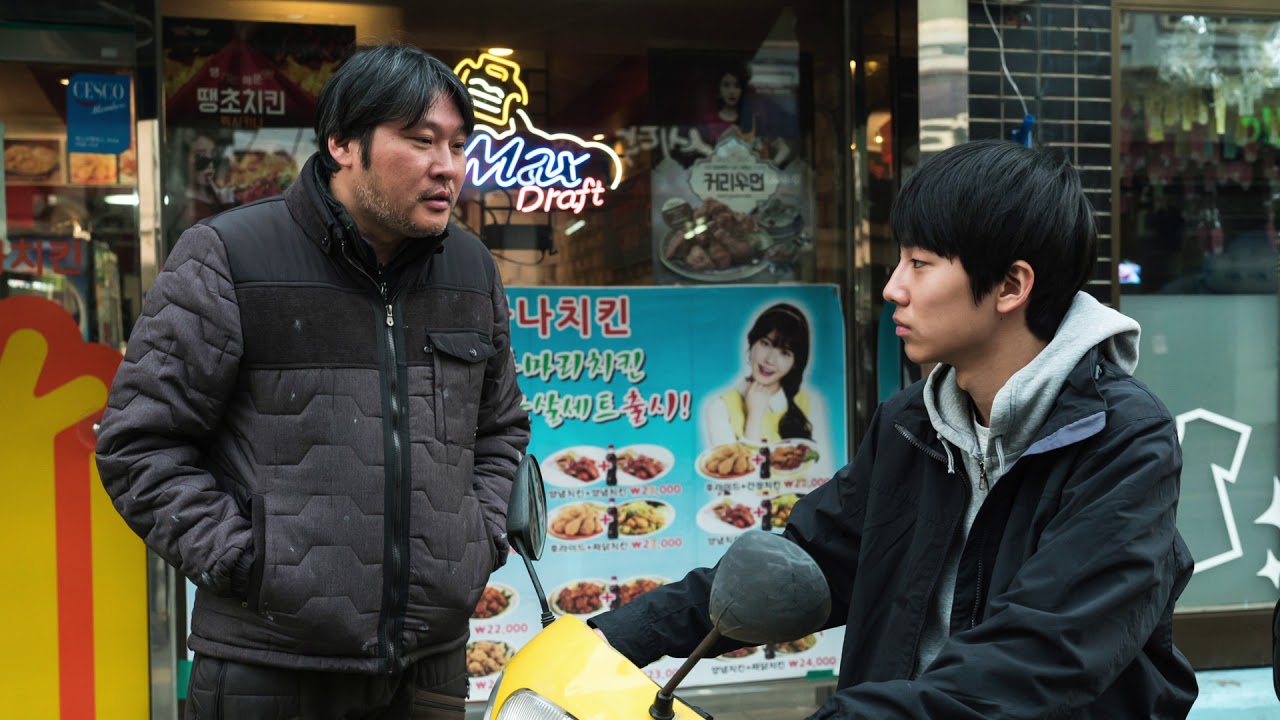
Seong-cheol and his wife, Mi-sook try to cope with a tragedy, as their son has recently drowned, trying to save a classmate of his, Gi-hyeon. Seong-cheol has thrown himself to work, as he runs an interior design entrepreneurship mostly dealing with wallpapers, while he has filed papers for his son to be accounted as a heroic citizen, an honor bestowed to people killed in a righteous account. His wife experiences the death of their only son much worse, shutting herself from the outside world, even including her husband, for whom she only has bitter remarks every time he mentions their son.
Eventually, and in a rather strange turn of events, Seong-cheol befriends Gi-hyeon, and after he learns of his miserable life story, since the kid has to live on his own, has no money, is bullied in school and has just recently lost his job, decides to hire him as a disciple. Soon, the boy grows on him, despite his wife’s fierce protests. Even she, though, eventually takes a liking to Gi-hyeon, with the two of them taking him under their wing, as the beginning of a sense of harmony begins to appear in their lives. Alas, this sense does not last for long, as the truth about their son comes out.
Shin Dong-seok directs a genuine drama, where grief and sadness seem to encircle all aspects of life, and the moments of joy are few and brief. Using the concept of the “lost child” and examining how the parents can cope with a loss of that magnitude, Shin presents a number of social comments that deal with parenthood, bullying, the way schools function in order to protect their fame, coping with grief, forgiveness, and truth and its consequences. His story follows the lines of “nothing good goes unpunished” in the harshest way, in a tale that keeps getting worse as the script progresses.
Yet, through his very thorough character analysis and the realism that permeates the film, he manages to avoid completely the reef of sentimentality, thus presenting a movie that has nothing to do with melodrama, as is the common tendency in Korean cinema. The fact that there is almost no music in the film trying to draw sentiment from various scenes is a testament to the aforementioned.
Furthermore, and in the element that most reminded me of Greek Tragedies, in the end, he provides a complete catharses for his characters, after he has allowed them to sink to the deepest depths a human can reach. I found the fact that this catharses is presented in literally terms, through actual water, ingenious, and one of the best elements in the whole production.
2. Human, Space, Time and Human (Kim Ki-duk)
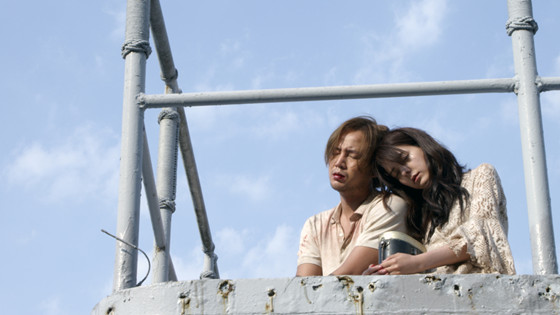
The rather surrealistic and full of allegories script takes place in a warship, which is taking a cruise with a number of quite different characters. The most central are a corrupt Politician and his supposedly idealistic son named Adam, a Gang boss and the rest of his group, a freshly-wedded couple comprising of Eve and her activist/idealist husband, the righteous Captain and his crew, and a strange old hermit.
Trouble brews almost immediately since the politician receives special treatment both regarding his meals and by occupying the sole suite in the boat, to the disgruntlement of the rest of the passengers, who eventually express their annoyance, with the Gangster and his group taking the role of the bodyguard of the privileged, almost without consent, and despite Adam’s protests.
During the night, and after consumption of large quantities of alcohol, sex begins to dominate the setting, with a number of prostitutes “hanging out” with the crew and the gangsters. However, things soon take a turn for their worse when Eve and another woman in the boat get raped repeatedly, while Eve’s husband ends up dead, with the gangsters and the politician and his son having a central role in all that is happening.
The next day, the people on board the vessel discover that the ship is flowing on air, above the clouds and the sea is nowhere to be found. Soon, their lives become a death race about the remaining food, with the Politician and the gangsters taking the role of the leaders from the Captain and the crew. The consequences are dire, and soon all hell breaks loose. As violence takes over, the only one who seems to hold his grip is the hermit, who starts planning for the future in cruelly logical fashion, while also taking Eve under his protective wing.
Kim’s sociopolitical comments are, mostly, obvious. Politicians just want power in order to retain a status (and the privileges that come with it) much higher than that of common people, and are willing to do anything to achieve just that, including having ties with organized crime and succumbing to various forms of violence. Furthermore, Kim seems to state that this concept is one of the main factors that lead to dictatorships.
Kim also makes a direct comment on the fight between authority (The Politician) and idealism (Eve’s husband), with the former presented as the obvious “winner”, and the latter as a notion that does not apply in real life. Furthermore, the concept of opportunism and its tactics is presented through The Gang Leader and his crew.
The cruelty associated with the instincts of survival of humans is also presented in the harshest fashion, in a concept that has been revisited a number of times in cinema (“Die Welle” comes to mind) by putting people in a claustrophobic environment and making a group of them in-charge. Expectantly, Kim takes the concept to its borders by also adding the basic instinct of survival through the lack of food, as violence, murder and a number of other grotesque concepts eventually take over.
1. Burning (Lee Chang-dong)
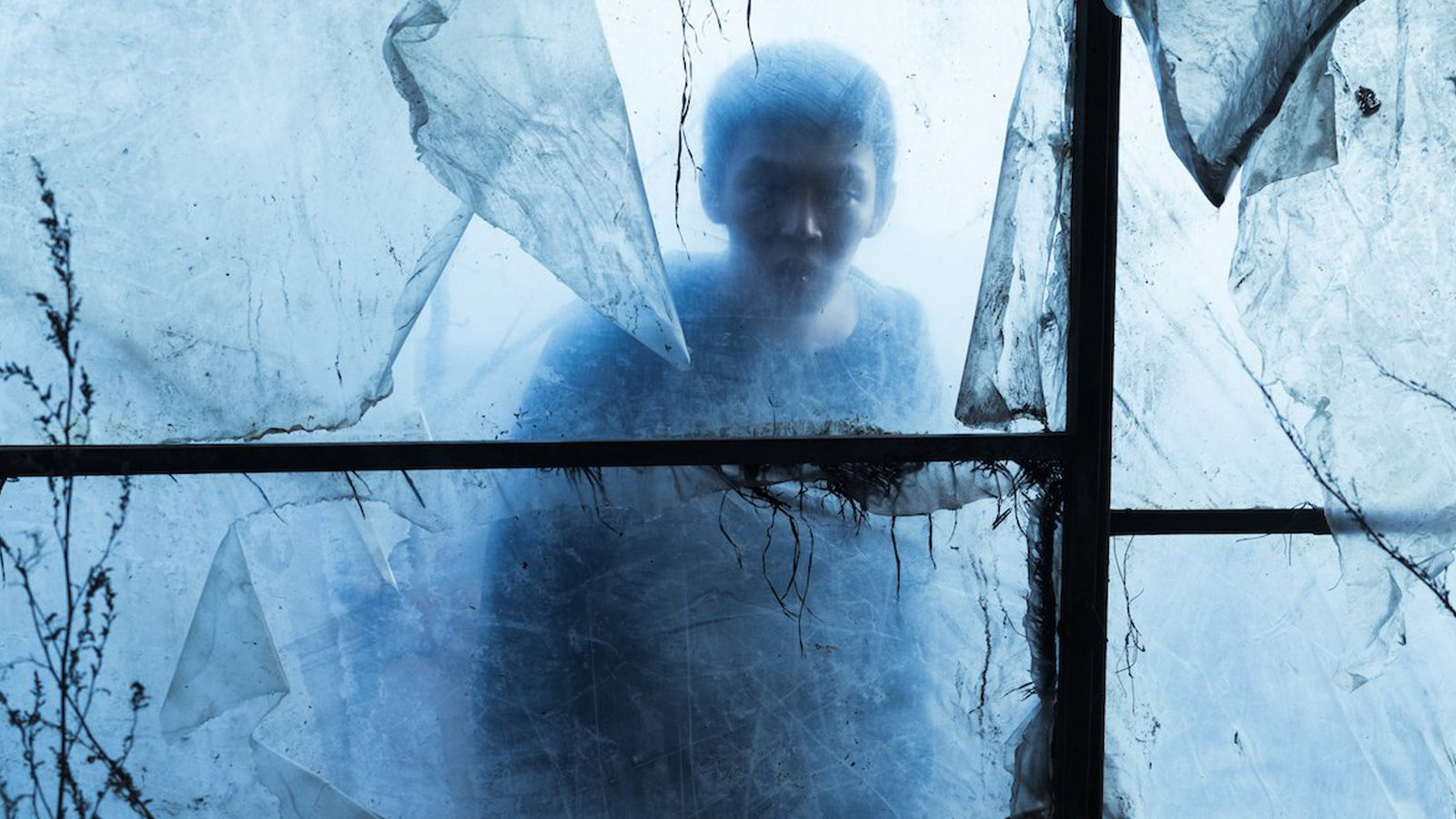
Lee Chang-dong is one of the greatest Korean filmmakers of our era (to say the least) and “Burning”, which has already won awards in festivals all around the world including Cannes, is a testament to the fact.
Loosely based on a Haruki Murakami novel titled “Barn Burning”, the film revolves around three characters: Lee Jong-su is an aspiring author who has not managed to come up with any writing yet, and sustains himself financially by performing odd jobs in Paju. One day he runs into Shin Hae-mi, a former classmate who is in a similar, dead-end situation and the two of them end up spending the night together.
Soon after, Hae-mi leaves for a trip to Africa, and “tasks” Jong-su with taking care of her cat in the small apartment she lives in, although in the meantime, the young man has moved back to his family home in the country. Eventually the girl returns and a more than happy Jong-su goes to pick her up from the airport, only to find her in the company of Ben, a young man who seems to be more than a friend.
To Jong-su’s surprise, the three of them start hanging out together, and is soon revealed that Ben is quite rich, living in a luxurious apartment and driving an expensive sports car, although the origin of his wealth is never revealed. Inevitably, and for all the aforementioned reasons, Jong-su is jealous of Ben, although his mysterious adversary seems to feel anything but. Eventually, the latter even opens up about his tendency to burn abandoned greenhouses. Soon after though, Hae-mi disappears and Jong-su starts “stalking” Ben.
Adapting Murakami’s novels on screen has never been an easy task, particularly due to their abstract nature, the inconclusive ending, and the many questions that never are answered. Lee Chang-dong, however, manages to do just that, by transcending the Japanese’s style and in the process creating an existential drama/thriller that seems much more his, than of Murakami’s. In that fashion, some details, like the never-appearing, supposedly autistic cat are definitely Murakami’s, but the progression of the story and the truly stocking finale seem to be Lee’s added elements.
The one sided antagonism between the two men, and the fact that Hae-mi does not seem to care or even acknowledge the fact, forms one of the basic axes of the film, although Lee uses this in order to make a rather harsh comment about human nature and the path obsession and assumption can lead someone.